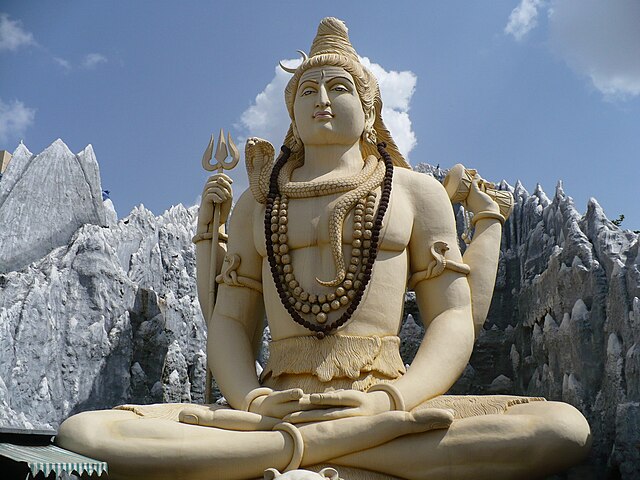Rudras refer to the forms of the god Rudra, whose traditions have since been associated with Shiva. They make up eleven of the thirty-three gods in the Vedic pantheon. They are at times identified with the storm deities referred to as Maruts, while at other times considered distinct from them.
Part of the Vyomamandala depicting Rudras - Circa 5th Century CE, Katra Keshava Deva; currently at Mathura Museum.
Rudra, identified with the Puranic Shiva (pictured) is associated with the Rudras.
Maruts
Rudra is a Rigvedic deity associated with Shiva, the wind or storms, Vayu, medicine, and the hunt. One translation of the name is 'the roarer'. In the Rigveda, Rudra is praised as the "mightiest of the mighty". Rudra means "who eradicates problems from their roots". Depending upon the periodic situation, Rudra can mean 'the most severe roarer/howler'
(could be a hurricane or tempest) or 'the most frightening one'. This name appears in the Shiva Sahasranama, and R. K. Sharma notes that it is used as a name of Shiva often in later languages. The "Shri Rudram" hymn from the Yajurveda is dedicated to Rudra and is important in the Shaivism sect. In Prathama Anuvaka of Namakam, Sri Rudram the "mightiest of the mighty" Rudra, is revered as Sadasiva and Mahadeva. Sadashiva is the Supreme Being, Paramashiva in the Mantra marga Siddhanta sect of Shaivism. Also, the name Shiva is used many times in the same Anuvaka for invoking Rudra.
Rudra, from an 18th-century Assamese manuscript Ananda Patani.
Three-headed Shiva, Gandhara, 2nd century AD





